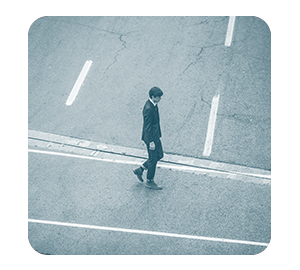Phobia
A Phobia is an intense fear of an object or situation when there is no real reason to be so afraid. in fact, the amount of fear doesn’t match the amount of danger. Nevertheless, most people have fears about things that they feel are threatening to them or that will cause them harm. But when a fear is persistent or unreasonable, it can affect life adversely and seriously.
You then start to manage everything around the fear. In addition, anything that reminds you of the thing you’re afraid of causes anxiety and distress. Eventually, life becomes limited and narrow. What’s more, you avoid things that you would really like to do because of the intense and pervading fear that you feel, often just by thinking about it.
Types of Phobia
- Flying on a plane
- Visiting new places
- Going to the dentist
- Going outside – agoraphobia
- Animals or insects, like snakes and spiders
- Meeting new people – social anxiety
Common Causes of Phobia
- A distressing experience
- Being in a place or situation that reminds you of a distressing experience
- Brain responses in some people
- Copying responses of other people
- Family history of phobia
- Feeling threatened by the object or situation of the phobia
- Genetic predisposition
- Hearing or reading about a distressing experience
- Social isolation so that you become overly fearful of ‘normal’ experiences
- Witnessing the phobia in other family members
Common Symptoms of Phobia
- Chest pain or tightness
- Choking sensations
- Feeling dizzy
- Instinctive avoidance of the situation, person or object
- Nausea or upset stomach
- Numbness or pins and needles
- Profuse sweating
- Rapid heart-beat
- Shortness of breath
- Trembling
To read more about Phobia, see downloadable PDFs: Phobia and Social Anxiety or Social Phobia.
Counselling for Phobia
Sadly, constantly experiencing these symptoms can wreck your life. However, you do not have to suffer. Indeed, counselling can help you to manage these distressing feelings. For example, learning meditation and relaxation techniques calms the body, making it less reactive to triggers. Additionally, cognitive behaviour therapy teaches you how to look at the cause of your distress differently, reducing its negative effect. And gradual exposure therapy can remove the fear completely if you give it time. In fact, with the right kind of help, you can learn to overcome the fear and get on with your life. So, if you would like some help, click on the image to book your session. You’ll start to feel better!
you to manage these distressing feelings. For example, learning meditation and relaxation techniques calms the body, making it less reactive to triggers. Additionally, cognitive behaviour therapy teaches you how to look at the cause of your distress differently, reducing its negative effect. And gradual exposure therapy can remove the fear completely if you give it time. In fact, with the right kind of help, you can learn to overcome the fear and get on with your life. So, if you would like some help, click on the image to book your session. You’ll start to feel better!
Contact Radiance Hobart Counselling & Self-Development
now for more information about what we have to offer

